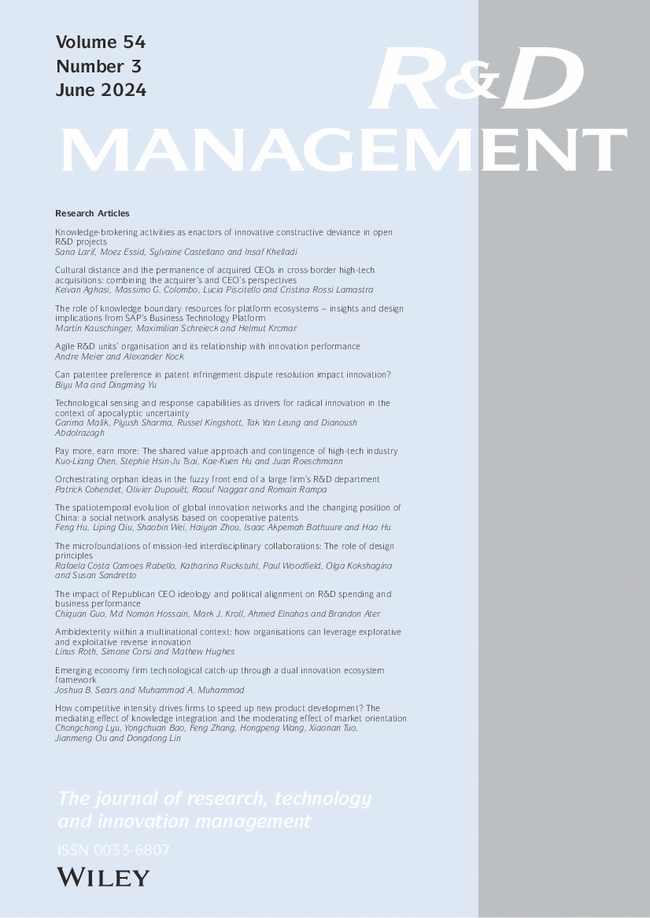Organizational support for digital transformation in the metaverse: a contingent pathway from user experience to digitalization resistance
IF 5.7
2区 管理学
Q1 BUSINESS
引用次数: 0
Abstract
As organizations intensify their digital transformation (DX) initiatives to navigate the evolving digital landscape, metaverses emerge as pivotal digital technology, enhancing collaborative and experiential interactions. Despite their growing integration, a profound understanding of how metaverse utilization influences employee behavior toward DX – particularly in digitalization resistance – remains underexplored. Building a theoretical framework based on the Technology Acceptance Model元世界中数字化转型的组织支持:从用户体验到数字化阻力的偶然途径
随着企业加紧实施数字化转型(DX)计划,以驾驭不断变化的数字化环境,元数据作为关键的数字化技术应运而生,增强了协作和体验式互动。尽管它们的融合度越来越高,但人们对元数据的利用如何影响员工的 DX 行为(尤其是在数字化阻力方面)仍缺乏深入了解。我们在技术接受模型和使用与满足理论的基础上建立了一个理论框架,剖析了用户在元虚拟世界中的体验、个人价值感知和组织支持之间的潜在相互作用,从而形成对数字化的抵制。通过分析企业中 309 名积极使用元虚拟平台进行职业互动的员工的数据,我们发现元虚拟平台中的信息量和社交互动大大提高了虚拟平台的感知价值。这种感知价值的提升与数字化阻力的减少密切相关,证实了量身定制的用户体验在促进技术接受度方面的关键作用。此外,研究结果表明,组织支持--以 DX 为中心的共同目标、可见度和沟通--在放大个人价值感知对数字化阻力的反向影响方面起着至关重要的调节作用。这项研究从理论上拓展了对技术特征、个人感知和组织对数字化的支持之间复杂关系的理解,从而为相关文献做出了贡献。它强调了战略调整的必要性,这种战略调整不仅包括技术实施,还包括全面的支持机制,从而帮助员工有效地利用数字技术,将其整合到操作流程中。这些发现对启动数字化的组织领导者具有实际意义,为有效管理数字化阻力提供了真知灼见。
本文章由计算机程序翻译,如有差异,请以英文原文为准。
求助全文
约1分钟内获得全文
求助全文
来源期刊

R&D Management
Multiple-
CiteScore
11.30
自引率
9.50%
发文量
0
期刊介绍:
R&D Management journal publishes articles which address the interests of both practising managers and academic researchers in research and development and innovation management. Covering the full range of topics in research, development, design and innovation, and related strategic and human resource issues - from exploratory science to commercial exploitation - articles also examine social, economic and environmental implications.
 求助内容:
求助内容: 应助结果提醒方式:
应助结果提醒方式:


